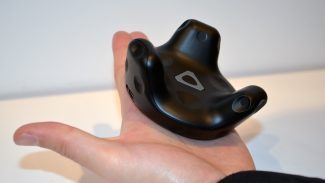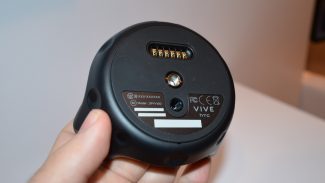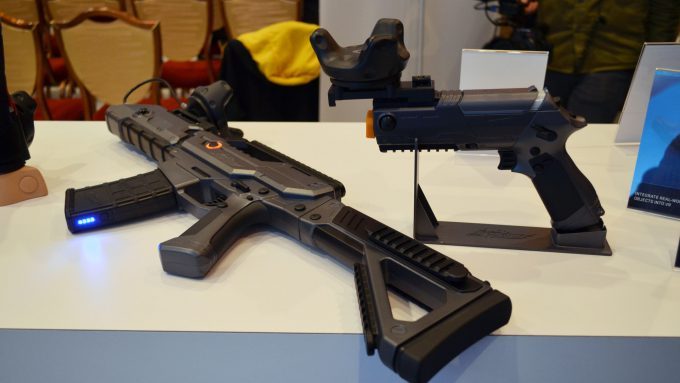At CES earlier this month, HTC announced the Vive Tracker, a standalone tracking device which taps into the Vive’s Lighthouse tracking system, and which can be attached to objects to track them in VR, including purpose-built accessories. The company plans to have an official certification process for accessory makers.

Yes, you can attach the Vive Tracker to pretty much anything to establish a tracking point inside the VR world, but for companies planning to make purpose-built VR accessories like guns, gloves, bats, and more which will make use of the Tracker, HTC will offer an official certification. The completion of the process, which the company plans to detail at a later date, is likely to result in something like a ‘Vive Ready’ badge that can be used on the accessories to show that HTC has verified compatibility with the Tracker, the company says.
“That’s why we’re going to be giving away a thousand of these [Trackers] around the world, and the ones who get them, we’re going to work with them and continue to make sure they’re compatible before they go out to market,” Alvin Wang Graylin, HTC’s China Regional President of Vive, told Road to VR at CES 2017.

It isn’t clear yet exactly what the certification process will entail, or what benefits the grantees will be entitled to, but one obvious guess is that the company will check the accessory to make sure the Tracker mounting point is adequate in both rigidity and placement, and that the creator is properly using the input/output functionality afforded by the Tracker’s wireless connection to the host computer. That connection could be used to send information like trigger pulls and button presses through the Tracker so that the accessory can control the corresponding VR application.
One thing we’re certainly hoping for is that all officially approved Vive Tracker accessories would have a precise 3D model of the accessory available in an open repository, giving developers an easy way to integrate with any accessory brandishing HTC’s approval.

If the accessory plugs into the Tracker via the pin connections on the bottom, it could communicate model information to the host computer, which could be used to lookup the corresponding 3D model and bring that model quickly into the game. That might be a bit beyond the scope of HTC’s certification process for Vive Tracker accessories, but it would be especially ideal for handling what may turn into a broad range of gun choices, and other more niche use-cases too (like the crazy firehose simulator we saw at CES).
HTC says details of the certification program will be revealed when the company starts shipping the Tracker to developers, which will happen ahead of the device’s Q2 consumer launch. So far the Vive Tracker has not been priced, though Graylin says the company expects it to be attractive to end-users who want to buy one Tracker and use it across different accessories.






